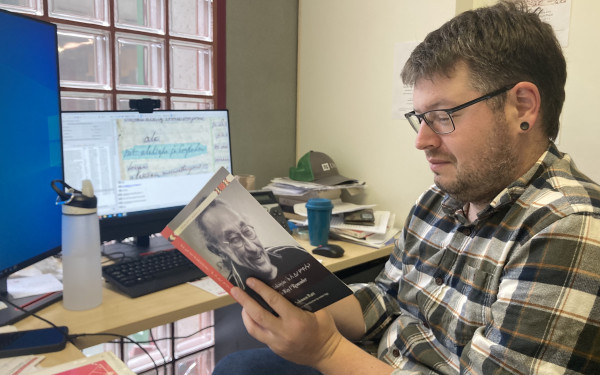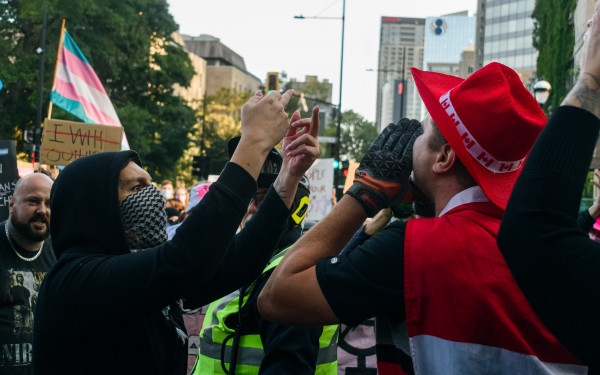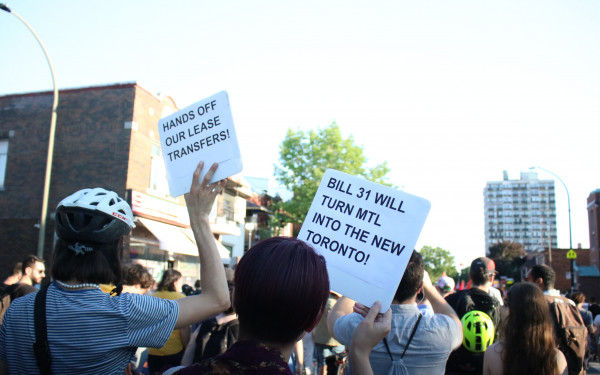The UN Turns a Blind Eye on Queer Rights
The issue of confronting international homophobia is a tough one to get my head around. The first response is irrational anger.
Why did the UN refuse to stand up for the rights of LGBT citizens? Why was it even put up for a vote? Why even leave the possibility open that vicious, primate prejudices could result in the senseless murder of defenseless citizens across the globe?
It’s easy to then paint the organization as a cowardly, ball-less, impotent bunch of political glad-handers who have callously turned their back on some of the most vulnerable populations worldwide.
Seeing the famous photo of two Iranian teenagers—suspected of being gay—publicly executed could easily bring out a vitriolic, stream-of-consciousness, tear-stained manifesto to the callousness of the larger world and the inevitability of a cannibalistic, apocalyptic end-game scenario for humankind.
But this, of course, is a rather juvenile instinct. I can’t rant away senseless hatred—as hard as I may try. The UN is not an evil puppet organization for homophobic murderers.
“Primitive” perfectly describes the problems faced by a group such as the UN who are forcing unreceptive countries to adopt measures that are in direct contradiction to institutionalized ideals. On the surface, these prejudices embody everything that is wrong with Western-centric nation building in the third world.
The UN is, after all, a democratic organization. Democracy, above all else, is to blame for LGBT persons being excluded from the UN’s list of groups protected in an amendment to prevent arbitrary executions.
Of course, this view is oversimplified as well. But there is a kernel of truth to it. Democracy is now normatively neutral. Any positive values attributed to the idea have vanished in the face of the 50 per cent plus one doctrine. Any idea is only as “good” as the percentage of people that support it.
Politicians have not provided any sort of moral compass on most social issues—especially the ones that don’t poll so well. They’re happy enough to let the all-encompassing 50 per cent doctrine justify any sort of backwards implementation of policing the public—or, more precisely, a majority of the voting public, closer to 25 per cent of the population in most Western democracies—agree, or are convinced, are desirable.
Of course, the implications of this idea for LGBT identified people worldwide is certainly worrisome. In our own supposedly enlightened Western democracy, with all those good, wholesome values that we cherish, allowing gay people to marry is still considered a “controversial issue.”
Gay bashing is not exactly tolerated, but it’s always around the corner. Most every idealized future or television show we are sold treats queer people as sort of a benign yet undesirable eccentricity. We accept them, but you probably don’t want anyone thinking that you’re gay (one of the easiest and most distasteful sitcom memes ever), and ‘normal’ people still have families and babies, or ultimately want families and babies.
Even the most visible religious leader in the Western world—Pope I-wish-John-Paul-was-alive Benedict—recently suggested that AIDS is only a significant problem in the gay community. And not just the gay community—the male, gay prostitute community.
You get the idea: if I identified as L, G, B or T, I wouldn’t count on the magnanimity of the greater (voting) population to ensure my basic human rights were respected.
And I certainly couldn’t count on the UN. They should have made the “unpopular” decision to unilaterally ensure that gay people aren’t rounded up and killed in too many parts of the world.
But democracy has spoken. And we have to listen.
This article originally appeared in Volume 31, Issue 16, published November 30, 2010.





